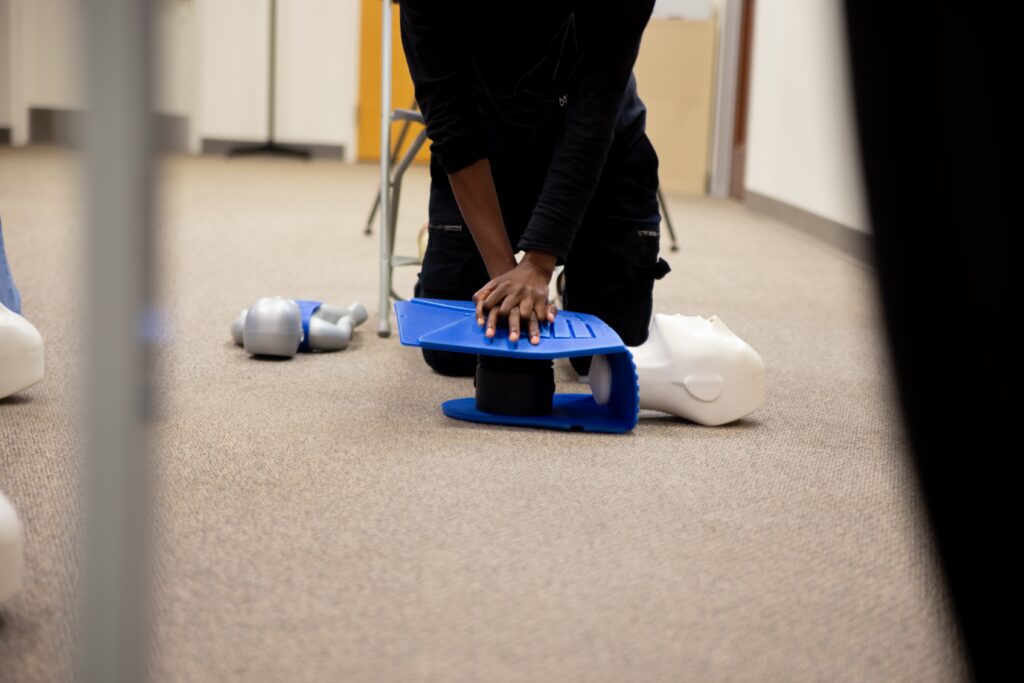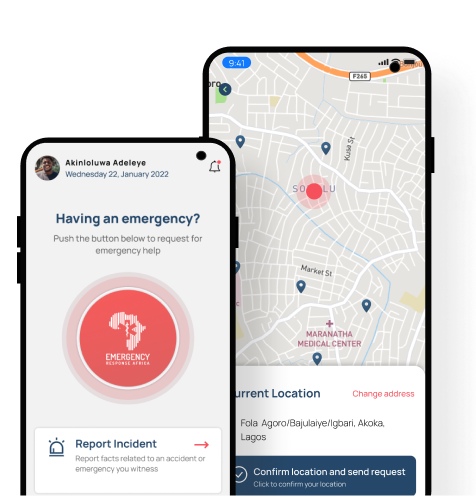According to healthline.com CPR or cardiopulmonary resuscitation is a life-saving procedure done to ensure blood and oxygen flow through the body when the heart stops functioning. i.e when a cardiac arrest occurs.
There are several great benefits of a CPR training course in Nigeria where first aid education is relatively low.
you could be the only bystander amongst thousands able to prevent a cardiac arrest from being fatal!
Expect this number to rise as economic conditions worsen and make living more stressful. If you possess this skill, you can confidently administer first aid to someone in need of it. CPR can be learned via quick online tips or you can learn from an accredited center and get certified.
Here are six amazing benefits you enjoy when you take a CPR-certified training course.
1. Learn Vetted skills
In 2010 only 11.5% of the CPR videos uploaded on social sites like youtube were found to be correct.
Thus, while the internet is a great place to learn, you should not extend this to life-saving skills like CPR.
To learn a skill critical to someone’s life you should seek an accredited body and their affiliations. This ensures you receive accurate knowledge and not a lesson with techniques that won’t hold up in real life.
2. Save lives faster
More than 7 million deaths annually are attributed to cardiac arrest, 90 percent are fatal.
In places like Nigeria, Lagos especially, with stressful living conditions, cardiac arrest is on the rise. Knowing how to administer CPR immediately on a victim increases their chances of survival by up to 10 percent while they wait for an ambulance service.
Undertake a certified CPR training course in Nigeria and you learn the right skills to do this effectively and save lives faster.
3. Help in Emergencies
Individuals with First aid training and CPR skills are needed in Nigeria within its flood and war-torn areas. Your ability to restore calm makes you valuable in any of these disaster settings. There are several bodies you can volunteer or work with like The National Emergency Management Agency. Your certificate is the first step.
4. Learn how to use a defibrillator.
The heart works by receiving electrical impulses and when this system fails, an automated external defibrillator (AED) can be used to send the required charge and normalize the heartbeat. This equipment works by analyzing the heart’s rhythm to know the right amount of electric charge required to restore its normal rhythm.
They are not your everyday equipment but you can learn to use them if you take up a CPR certification course from a professional body here in Nigeria.
Do you stay around people with heart complications at work or at home? A nearby AED you can use can make a lot of difference if a cardiac arrest occurs.
5. Its demanded by other professions
CPR is not only required by health care providers, other professions like Health and Safety Professionals, Lifeguards, coaches, Flight attendants, and volunteers require them too.
A CPR-certified teacher for instance would know the kind of CPR to administer to children as this is different from what is administered to adults.
Generally, if your job requires you to monitor a crowd then you require CPR training.
6. Boost productivity
People are at their best when life-saving measures are available and accessible. Knowing CPR can boost the productivity of your colleagues at work due to the increased confidence they feel knowing a lifesaver is nearby.
If you are an employer in Nigeria then encouraging your employees to take CPR and first aid certification courses in Nigeria is a great way to show you understand workplace dangers and care about your staff.
7. Detect signs early, prevent fatalities
Over half of sudden cardiac arrest patients had warning signs before their incident.
In men, chest pains are experienced before a cardiac arrest, and in women shortness of breath. These signs are better known in developed countries and less in developing ones like Nigeria.
Taking a CPR training course in Nigeria exposes you to these facts so that you can help detect them early amongst friends, family, and colleagues.
You also learn these major risk factors :
- A family history of coronary artery disease.
- Smoking.
- High blood pressure.
- High blood cholesterol.
- Obesity.
- Diabetes.
- An inactive lifestyle.
Learn life-saving skills with ERA, and bridge the knowledge gap.
Taking a first aid and CPR training course in Nigeria is a great way to bridge the first aid knowledge gap in the country. When searching for a CPR certification course in Nigeria ensure it is physical training so that you learn under a real-life scenario and also ensure your provider is qualified to offer CPR training.
At Emergency Response Africa we offer first aid and CPR training online and in person in Lagos, and can bring the training program to any location in the country.
Take advantage of our first aid and CPR certification courses in Nigeria and join the fight against preventable deaths.





I found it interesting when you said that you can boost the productivity of your employees when you have them CPR trained since they will be confident that they can save lives. This is something that must be shared with company owners, especially those in the construction industry. I could imagine how CPR training would provide an extra level of safety to all the people at the site.